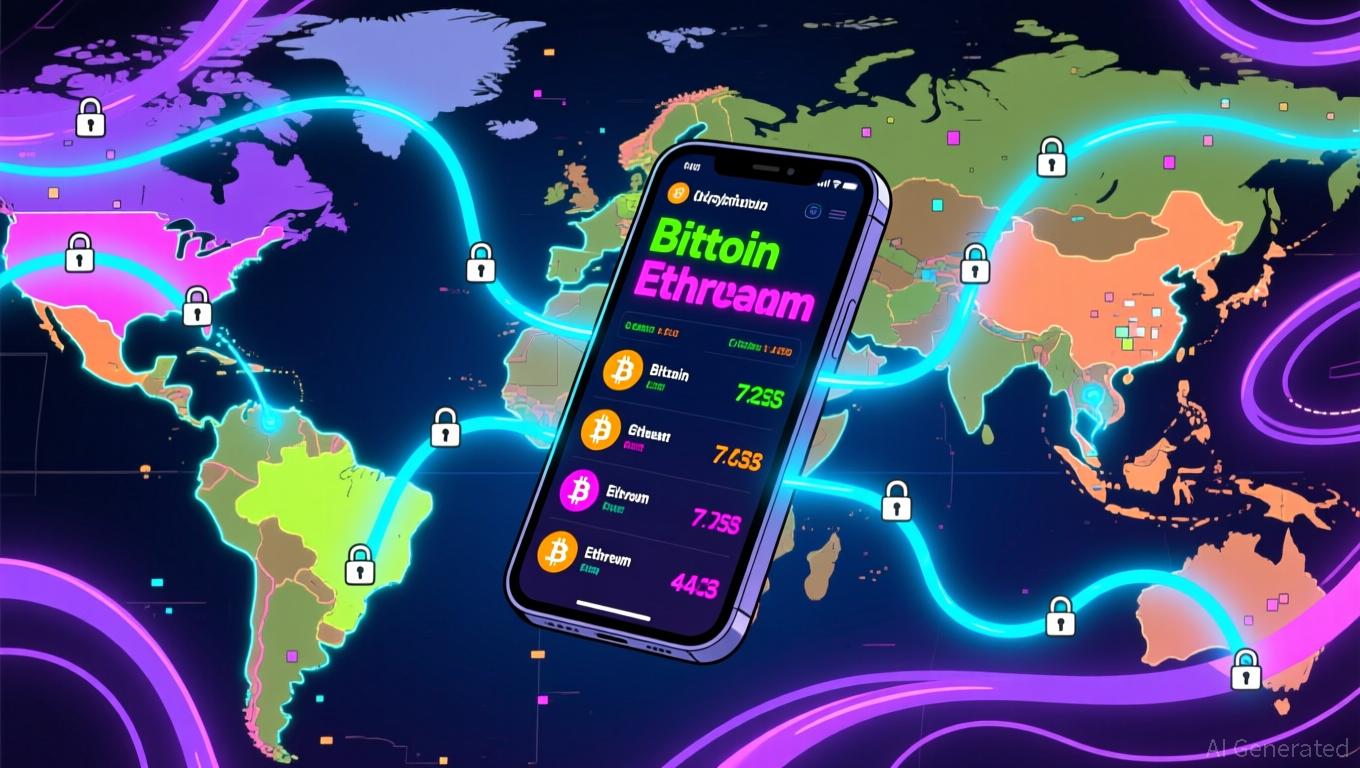UAE Establishes International Benchmark for Crypto: Striking a Balance Between Progress and Oversight
- UAE enacts landmark crypto law (Federal Decree No. 6/2025) to regulate DeFi, Web3 protocols, stablecoins, DEXs, and blockchain bridges under central bank oversight. - Entities offering crypto financial services must obtain licenses by September 2026, enforcing AML compliance and systemic risk mitigation through reserve audits and security standards. - Framework balances innovation with stability, supporting UAE's economic diversification goals while attracting institutional investors through regulatory c
The United Arab Emirates has taken a significant step in the international crypto sector by introducing
The law’s coverage is broad, including decentralized finance protocols, tokenized networks, and tools that enable cross-chain asset movement. By placing these activities under centralized regulation, the UAE seeks to boost transparency, strengthen anti-money laundering (AML) measures, and shield users from systemic threats—especially in areas like stablecoins, where liquidity issues could have widespread financial consequences
The UAE’s regulatory strategy aims to strike a balance between encouraging technological advancement and maintaining financial stability. By creating a transparent licensing process, the country positions itself as a welcoming environment for crypto businesses, while also reducing the unpredictability often associated with decentralized technologies
Importantly, the law gives organizations until September 2026 to meet the new requirements, allowing time for adjustment. However, failing to comply could result in hefty fines—up to one billion dirhams—and possible criminal prosecution
By expanding its regulatory framework to include DeFi and Web3, the UAE has established a new standard for global crypto oversight. This move highlights the nation’s dedication to building a robust digital finance sector that safeguards users while embracing the innovative potential of blockchain. As other countries consider how to govern decentralized technologies, the UAE’s approach provides a model for merging innovation with structured regulation.
Disclaimer: The content of this article solely reflects the author's opinion and does not represent the platform in any capacity. This article is not intended to serve as a reference for making investment decisions.
You may also like
Bitcoin Updates: Meme Coins Evolve: Shifting from Trend to Foundation
- Shiba Inu (SHIB) stabilizes near $0.0000081 amid 20,000%+ burn rate spikes and $5B market cap rebound. - AlphaPepe (ALPE) gains traction with 3,700+ holders via instant delivery, staking, and $5.81M presale surge. - Bitcoin's golden cross and potential Fed rate cuts fuel broader crypto optimism , with SHIB's $0.0000078–$0.0000085 support zone critical. - Meme coins shift from hype to structured participation, emphasizing functional tokenomics and real-time governance tools like Polymarket.

CryptoAppsy: Experience Instant Access—No Registration Needed, Perfect for Fast-Moving Markets
- CryptoAppsy offers real-time crypto price tracking and alerts via iOS/Android, requiring no account creation, targeting global users in Turkish, English, and Spanish. - Market volatility drives demand for instant data, contrasting with subscription-based models, as seen in GoPlus's 717M monthly API calls and WEEX's 100% APR promotions. - Competitors like BI DeFi emphasize security upgrades post-$15B breach, highlighting crypto's growing focus on risk mitigation alongside innovation. - CryptoAppsy's succe

Ethereum Latest Updates: Buterin's Railgun Transaction Ignites Privacy and Pre-Sale Discussion as ETH Reaches $3,000
- Vitalik Buterin transferred $2.9M ETH to privacy protocol Railgun as Ethereum surged past $3,000, triggering speculation about liquidity events. - On-chain analysts highlight Railgun deposits' historical link to pre-sale activity, though Buterin's 0.4% stake transfer doesn't inherently signal selling. - Buterin's $738.6M ETH holdings and recent privacy advocacy, including his "privacy is hygiene" stance, frame the transaction's strategic context. - Market reactions remain divided between regulatory hedgi

Thailand Closes Worldcoin Due to Unlawful Exchange of Biometric Data for Cryptocurrency
- Thailand ordered Worldcoin to halt operations and delete biometric data from 1.2 million users, citing PDPA violations involving iris scans for crypto tokens. - Authorities raided a Bangkok scanning center in October 2025, arresting employees for operating an unlicensed exchange and highlighting data leakage risks. - Worldcoin paused services in Thailand, denying wrongdoing, while the WLD token dropped to $0.6172 amid global regulatory crackdowns in Colombia, Spain, Brazil, and Kenya. - Regulators worldw